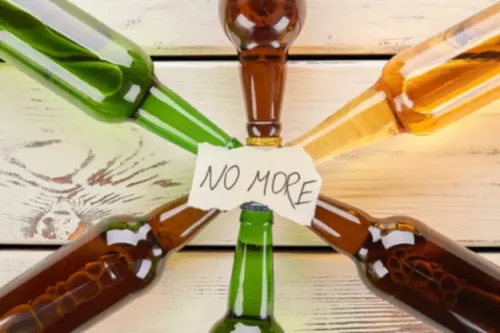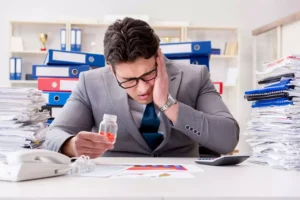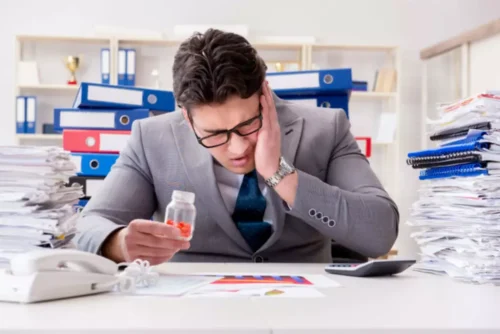
It is important to understand how alcohol addiction is different from drug addiction. That is how we can alcoholism have a fair idea about how to go for the treatment. Although both involve dependency on drugs, their effects on the brain and body might be quite dissimilar. Alcoholism is a condition where one cannot stop drinking alcohol despite being aware of its harmful effects.
Which Is More Dangerous: Alcohol or Drugs?
This can increase anxiety and make intrusive thoughts feel more intense at first, leading some to worry if sobriety is making their OCD worse. It’s easy to assume that since OCD compulsions are repetitive, they must be addictions. While both compulsions cause urges that can be hard to resist and can lead to significant distress if you don’t engage, they are completely different symptoms. According to Ibrahim, people are more likely to develop OCD and SUD if there’s a family history of the conditions.

Alcohol and Mental Health

It may mean a medical substance that helps treat or avoid diseases and other ailments. There are also drugs that are used for the fun of it, or to enhance the good experience. These kinds of drugs have many prohibitions and regulations, because they may prove unpleasant when abused. However, they too have differences in use that if weren’t abused, would be very beneficial to the body.
- However, like many other drugs, the consequences of abuse can be serious.
- MAT is often used for opioid addiction but can also be used for alcohol addiction.
- When it comes to addiction treatment in Wisconsin, one of the most critical aspects of care is a personalized treatment program.
Does getting sober make OCD worse?
SUD affects a person’s brain and behavior, leading to strong or uncontrollable urges to use a substance—also known as addiction. Because of the physical and psychological dependency SUD creates, people with addiction issues will continue to drink, use drugs, etc., despite the negative consequences. Fortunately, addiction and OCD are both treatable mental health conditions, and it’s possible to address OCD symptoms while you are in recovery for substance use (and vice versa). OCD and substance use disorders (SUD) often occur at the same time, with drugs and alcohol providing a temporary escape from intrusive thoughts and compulsions. There are many different types of drugs, including alcohol, that can be extremely detrimental to the user. Like alcohol, drugs range from many different forms and strength levels.

Treatment Options
- Understanding these differences can help you make informed choices about use and its implications for your health.
- Treatment for alcohol and drug addiction can be effective with the right support and resources.
- Addiction manifests through powerful cravings and changes in behavior.
- Many people with OCD turn to substances as a way to escape intrusive thoughts or relieve anxiety from compulsions.
However, current trends show a decline in alcohol taxes and prices, which may worsen alcohol-related issues in society. Exploring the consumption patterns of alcohol reveals the significant influence that taxation, pricing, and regulatory trends have on public health outcomes. Addiction to alcohol is a term that refers to an addiction to alcohol. Drug addiction refers to a generalized condition in which one can become addicted to any substance. They can make us cruel to our loved ones, cause us to lose our jobs, damage our bodies, and even cause us to become addicted to addictive substances.
Are Alcoholism and Drug Addiction Different? ”
No one would dare offer me meth or cocaine (well, this is Los Angeles, so maybe cocaine). That means we don’t teach anyone how to consume it responsibly, even though most drinkers start drinking long before they reach the 21-year age limit. According to the National Institute on Alcohol Abuse and Alcoholism, alcohol causes 88,000 (62,000 men and 26,000 women) deaths every year. The National Institute on Alcohol Abuse and Alcoholism tells us alcohol shortened the lifespan of those 88,000 by 30 years. That makes alcohol the third leading preventable cause of death in the U.S.
- Alcohol is classified as a drug due to its ability to alter consciousness and its potential for habit formation.
- Treatment centers provide an environment for the individuals, free from distractions or temptations.
- However, drugs such as opioids, narcotics, hallucinogens, and stimulants are illegal and can be laced with other dangerous drugs to heighten their euphoric effects.
However, drugs can be highly addictive, and some individuals may become addicted after just one use. Keep in mind that both alcohol and drugs can significantly influence mental health, leading to a range of emotional and psychological issues. Understanding these effects is important for making informed choices about substance use and its implications for your overall well-being. Consequently, the implications of long-term drug abuse can be life-altering. You might face severe mental health issues such as anxiety, depression, or psychosis.

The Role of Forgiveness in Healing from Addiction
- Addictive substances create a high, which is brought on by the release of dopamine in the brain.
- Much like drug addiction, those who embark on alcohol often do it as a result of various stressors.
- Drug rehab focuses on treating addiction to illicit and prescription drugs, while alcohol rehab specializes in addressing alcohol use disorder (AUD) and its unique challenges.
- This helps individuals to not relapse and solely focus on treatment and recovery.
We’ll give you skills to discover your self-worth and show you the tools for a life of hope and promise. Research indicates that alcohol consumption is closely related to its price. Studies have shown that issues difference between drugs and alcohol like highway crash fatalities and cirrhosis deaths decline with increased alcohol prices. Even minor tax increases on alcohol can lead to a decrease in consumption, highlighting a direct correlation between pricing strategies and public health NCBI Bookshelf.